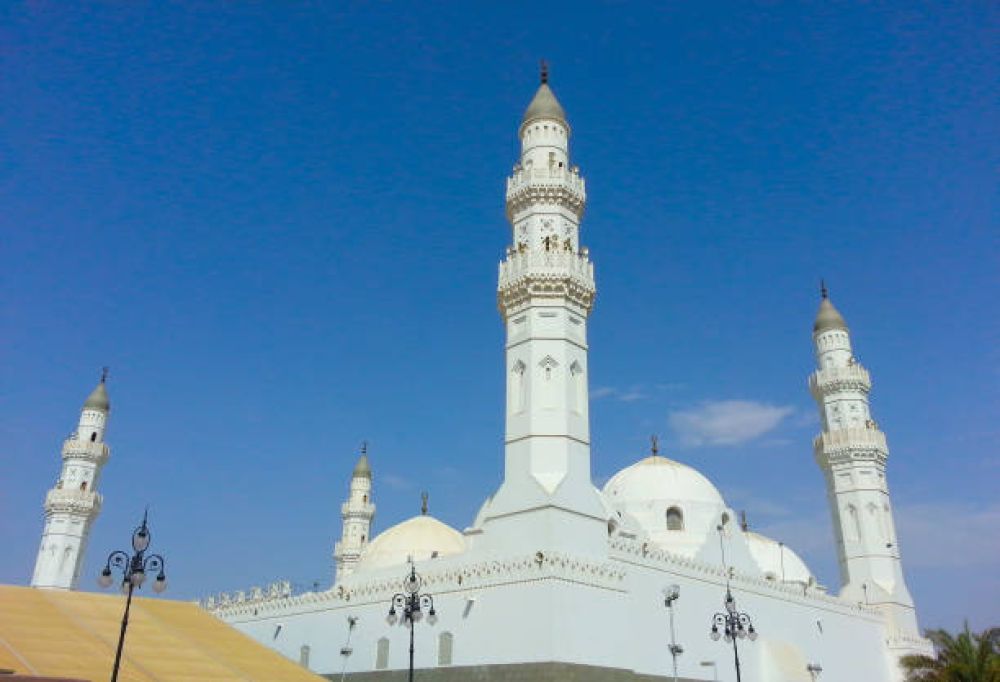

The Qiblatain Mosque, also known as the Mosque of the Two Qiblas, is a significant landmark situated in Medina, Saudi Arabia. Its history is deeply intertwined with the early years of Islam, making it a vital pilgrimage site for Muslims around the world.
The mosque's historical importance lies in an event that occurred during the lifetime of the Prophet Muhammad. Initially, Muslims faced Jerusalem when praying. However, during a congregational prayer led by the Prophet, he received a divine command to change the direction (qibla) towards the Kaaba in Mecca. This event is known as the Qibla Change and holds profound religious significance as it marked the establishment of an Islamic identity distinct from Jewish and Christian practices of the time.
Tourism at the Qiblatain Mosque has evolved alongside the growth of religious tourism in Saudi Arabia. As the country is home to the two holiest cities in Islam, Medina and Mecca, the Kingdom has historically seen a steady stream of pilgrims. The government has increasingly invested in tourism infrastructure, ensuring that visitors can comfortably access religious sites such as the Qiblatain Mosque.
The mosque's architecture has been through several renovations throughout its history, reflecting various artistic and architectural influences. Visitors are often struck by its white facade and the interior's blend of modern design with traditional Islamic elements. The mosque features two mihrabs: one indicating the direction towards Jerusalem, and the other towards Mecca.
In recent years, there has been a noticeable shift towards diversifying the tourism experience in Medina. While religious tourism remains the primary draw, there is an increasing emphasis on cultural and historical education.
The Saudi Vision 2030 plan aims to enhance the tourist experience by improving infrastructure, offering multilingual guides and embracing digital transformation. Developments including e-visas and improved transportation methods have made access to sacred sites like the Qiblatain Mosque more straightforward and welcoming for international visitors.
While the mosque continues to be a center for prayer, it has also become a place for visitors to reflect on the significant historical event that ties them to their faith. The mosque is open to Muslims and non-Muslim visitors alike who are interested in the historical aspects of the site, with certain areas designated for worship.
Note: It's important for tourists to respect local customs and religious practices when visiting the Qiblatain Mosque and other sacred sites in Saudi Arabia.